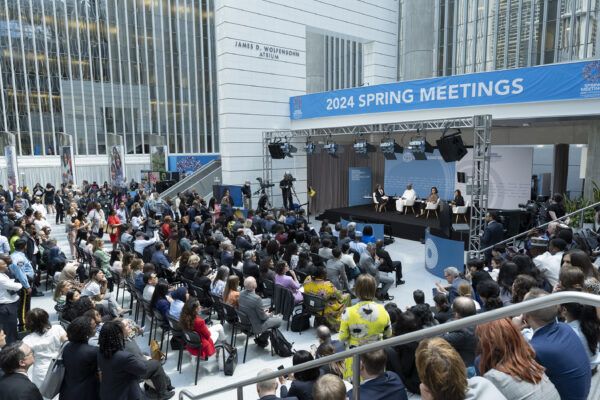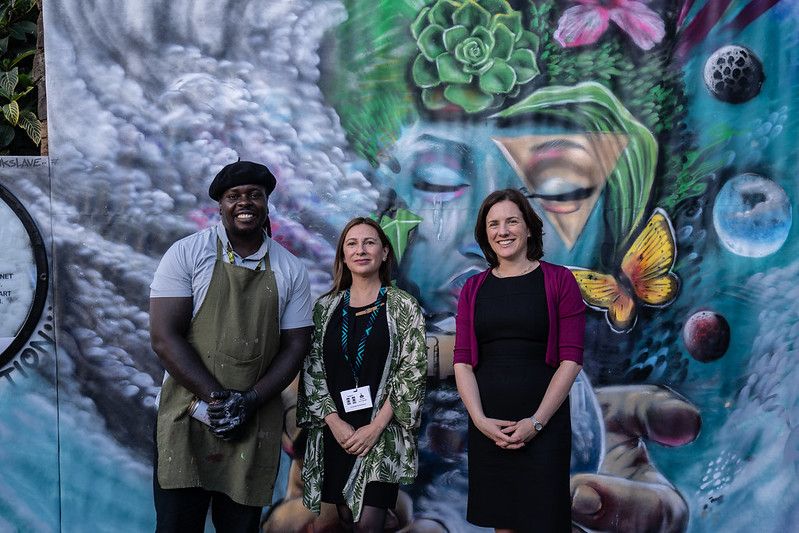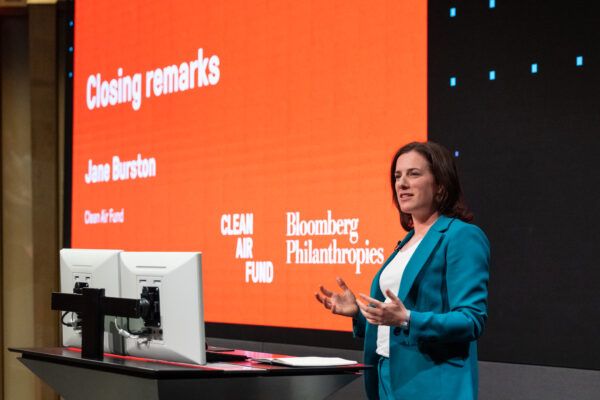We recently celebrated Clean Air Fund becoming five years old, having spun out of the Children’s Investment Fund Foundation as an independent organisation in 2019. That year, we publicly launched our mission at the UN General Assembly, with $50 million from six fantastic funders.
Five years on, we’ve raised a further $130 million to support hundreds of organisations working on air quality globally. We’ve established national-level programmes in India, Poland, UK, Ghana and South Africa. And we’re raising air pollution up the global agenda.
Looking back, I’m struck not just by the progress the movement has made so quickly, but also by what we’ve learned along the way…
If you want ambition, look to city mayors
Air pollution is a global problem that needs local solutions. From our first ever grant, on public engagement with the health impacts of air pollution in Polish and UK cities, we’ve seen the critical role local information plays in spurring change. In London, Warsaw, Delhi and Accra, we’ve seen city officials test localised approaches and innovative solutions that can be scaled and shared with others.
Our Breathe London pilot combined an innovative network of air quality monitoring, community campaigning and technical support to local government to drive an ambitious air quality agenda in the UK’s capital. Now, in partnership with Bloomberg Philanthropies and C40 Cities, we’re taking this successful approach global through Breathe Cities. Eleven cities have started the journey of implementing this model, and are sharing insights and lessons to inspire even more cities to act.
Air quality not (yet) on the global stage
Change at a national level has been a lot harder, not least because there isn’t enough pressure or incentive to act from neighbouring countries, regional agreements or international processes. Air quality often falls in between the cracks of intergovernmental bodies and sectors. Other international issues like climate change, biodiversity and plastic pollution have international processes to push countries to commit to action. But despite air quality featuring in many high-level speeches, governments are not committing to action or putting their money where their mouths are.
Along with our partners CEEW, we established the Our Common Air commission to redress the balance. It brings together powerful voices to catalyse and accelerate global collective action on air pollution. The commission calls on relevant stakeholders to value clean air as an asset, effectively finance the transition, and set WHO-aligned clean air targets. We’re also urging them to collaboratively track progress towards a common goal and commit to urgent action on short -lived climate pollutants.
We’re seeing progress. Air quality was highlighted in the first-ever Health Day at COP28 and the UN Environment Assembly’s resolution earlier this year. The Multilateral Investment Guarantee Agency (MIGA) pledged $1 billion in financial guarantees to de-risk air quality projects. And the World Health Assembly resolved that the World Health Organization would prioritise enhanced decision-making and resources for clean air as a key public good for health in 2025-28.
Most companies are waiting for regulation before they report on pollution
While businesses’ greenhouse gas emissions are scrutinised, air pollutants are largely going unchecked. With the World Economic Forum and ten leading multinational companies, we launched the first-ever corporate Alliance for Clean Air to drive change in the private sector.
Joined by more members each year, companies in this alliance are publishing inventories of their air pollution emissions, a major step forward for private sector transparency. With academic partners the Stockholm Environment Institute, they are setting standards for other businesses, as regulations mandating air quality reporting for all large businesses are coming in the EU next year and have already kicked in India.
Dedicated people are the heart our movement
Clean Air Fund’s impact is driven by our amazing team of staff, our partners and our funders, who are committed to making clean air for all a reality.
Back when Clean Air Fund was just an idea in a PowerPoint deck and there were only two of us, our funders were our team. We developed our vision, devised the theory of change and decided which countries to focus on with our funders. They introduced me to their peers to raise additional funds. I’m proud that we’ve maintained that culture of trust even though now the faces are almost all new. And I’m proud that our team – now comprising 80 people around the world – are incredibly diverse, but all value evidence, dynamism and collaboration.
I’m constantly inspired by our partners. The achievements of the last five years wouldn’t have been possible without their ambition, creativity, expertise and tireless dedication.


